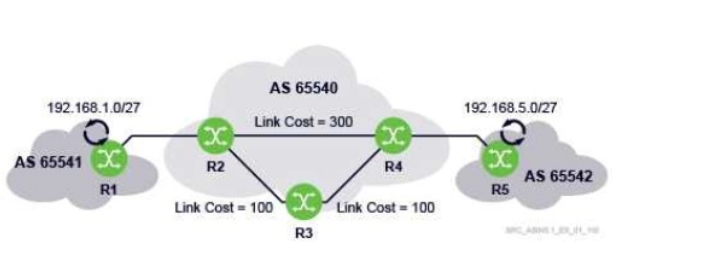Which of the following enables service providers to support multiple customers with the same VLAN ID over the same backbone?
Correct Answer:
B
VLAN Stacking, also known as Q-in-Q tunneling, is a technology that allows multiple customers to use overlapping VLAN IDs while being transported over a shared service provider network.
Key Concepts:
Customer VLAN (C-VLAN): The VLAN used by the customer in their own network.
Service VLAN (S-VLAN): The VLAN used by the service provider to encapsulate the customer VLAN.
When VLAN stacking is applied:
A customer's Ethernet frame already tagged with a C-VLAN is encapsulated with an additional outer S-VLAN tag.
This way, multiple customers can use the same C-VLAN ID, but remain isolated by the unique S-VLAN assigned to them by the service provider.
Why Other Options Are Incorrect:
A . VLAN Trunking: Used to carry multiple VLANs over a single physical link but doesn't allow reuse of VLAN IDs across customers.
C . VLAN Tagging: Refers to the general process of adding a VLAN tag; it doesn't provide the isolation needed across shared infrastructure.
D . VLAN Routing: Refers to Layer 3 routing between VLANs, not to ID reuse or transport over a shared provider backbone.
Nokia Service Architecture and VPNs Study Guide -- Section: ''Q-in-Q VLAN Stacking''
IEEE 802.1ad Standard -- Provider Bridges (Q-in-Q)


